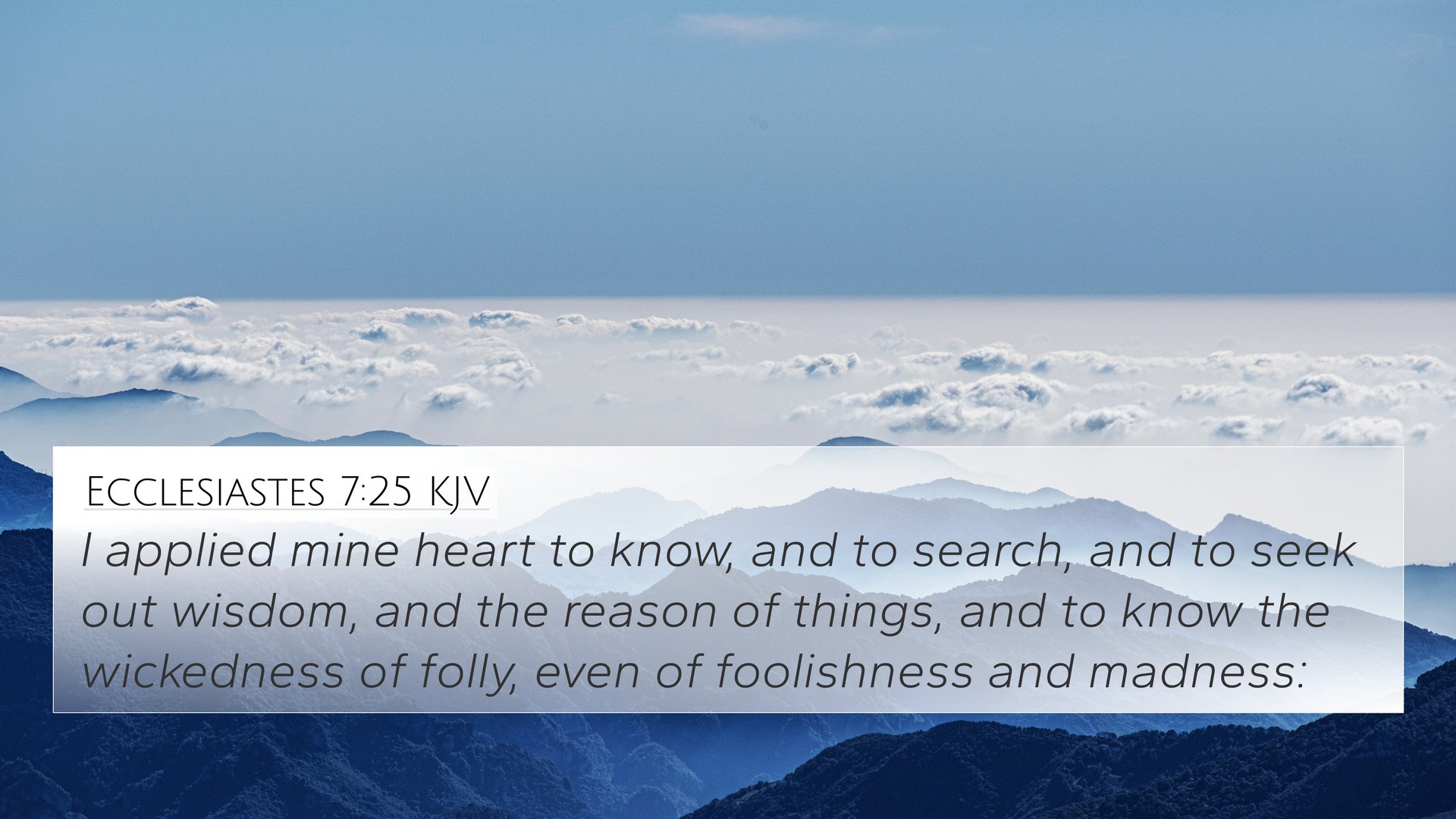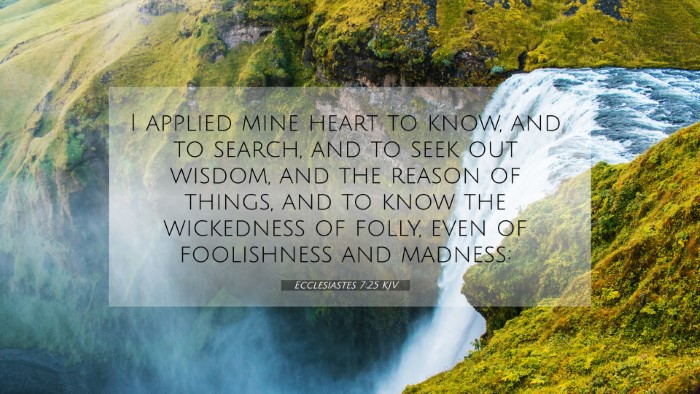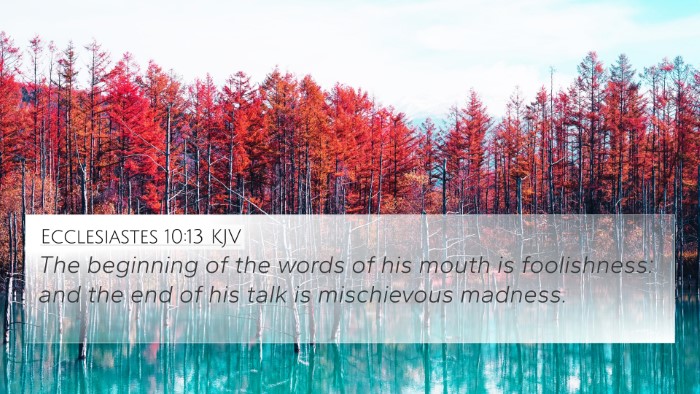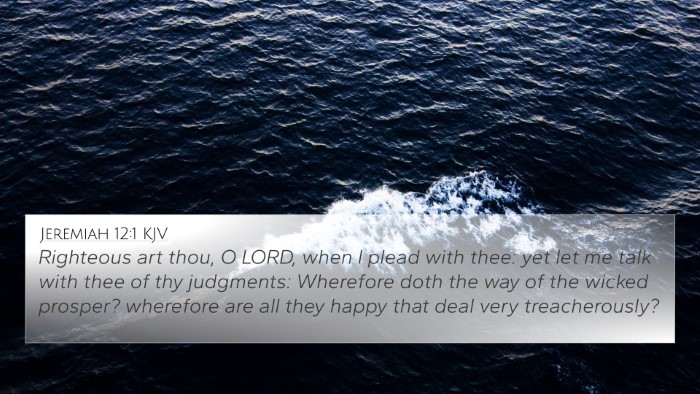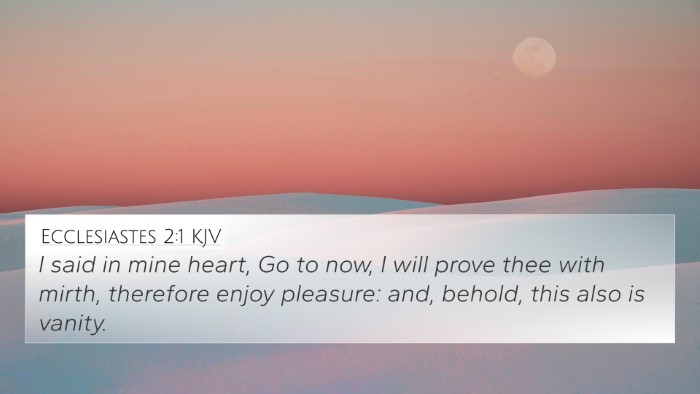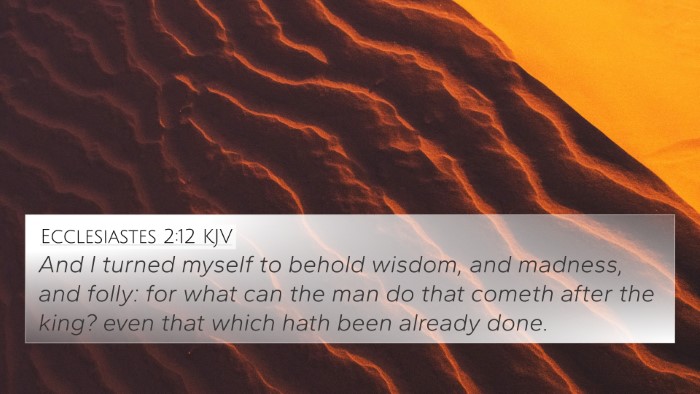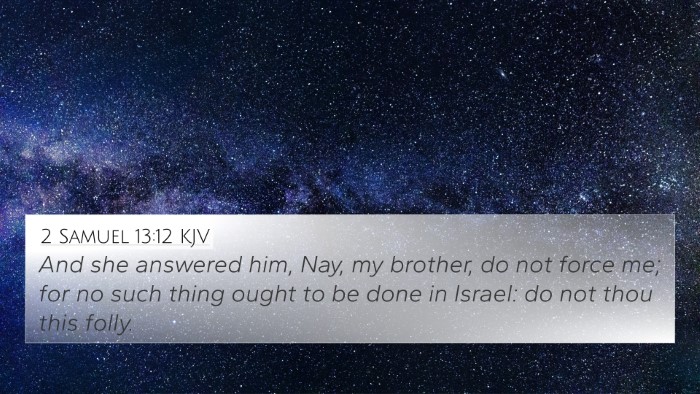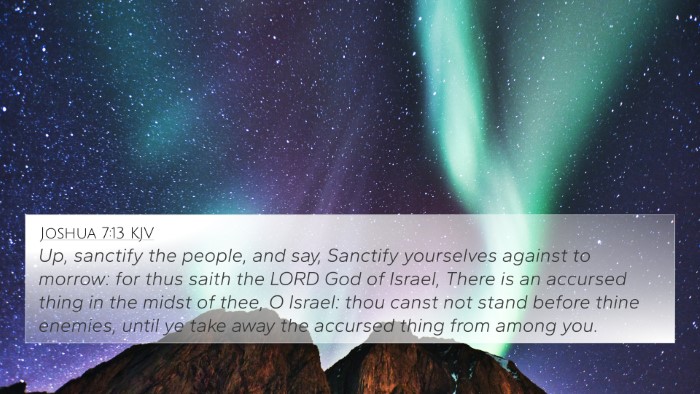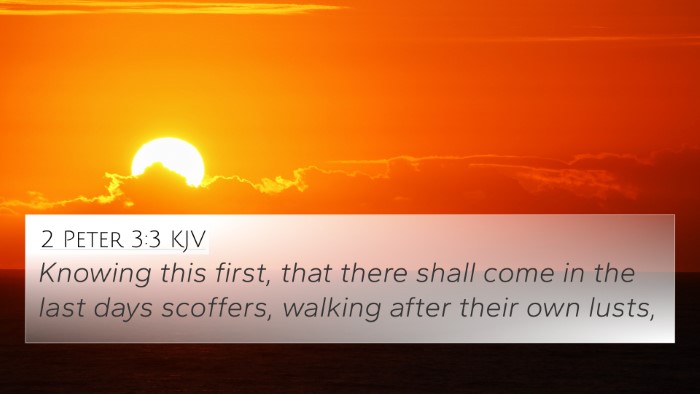Understanding Ecclesiastes 7:25
Ecclesiastes 7:25 reads: "I applied my heart to know, and to search, and to seek out wisdom, and the reason of things, and to know the wickedness of folly, even of foolishness and madness." This verse encapsulates a profound pursuit of wisdom and understanding, reflecting the writer's earnest desire to comprehend the complexities of life and human behavior.
Overview of Ecclesiastes
The book of Ecclesiastes is known for its contemplative tone and philosophical reflections on life, often centering on the themes of vanity and the search for meaning. The author, traditionally identified as Solomon, explores various avenues for satisfaction and understanding, ultimately concluding that much of what is sought after is "vanity" without a connection to the divine.
Verse Meaning and Interpretation
In Ecclesiastes 7:25, the author states a commitment to seek out wisdom. This aligns with the biblical theme found throughout the Scriptures, where wisdom is often personified and viewed as a valuable treasure.
Insights from Public Domain Commentaries
-
Matthew Henry:
Henry suggests that the pursuit of wisdom is essential and highlights that true wisdom involves understanding the nature of folly and madness. This understanding serves as a pivotal guide through the complexities of human behavior.
-
Albert Barnes:
Barnes emphasizes the systematic approach to seeking knowledge, illustrating that the writer's heart is engaged in a deep examination of life. He views this quest as a necessary endeavor for anyone striving for enlightenment and moral clarity.
-
Adam Clarke:
Clarke points out that the verse reflects on the contrast between wisdom and folly. He notes the importance of understanding the consequences of one's actions and recognizing the madness that often accompanies a life devoid of discernment.
Key Themes and Their Cross-References
The verse embodies themes such as the pursuit of wisdom, discernment, and the understanding of human folly. Several biblical cross-references complement these themes:
- Proverbs 2:1-5: Emphasizes the importance of seeking wisdom and understanding.
- James 1:5: Encourages believers to ask God for wisdom, reinforcing the need for divine guidance.
- Ecclesiastes 1:13: Highlights the pursuit of knowledge as a burdensome task under the sun.
- 1 Corinthians 1:25: Declares the foolishness of God is wiser than human wisdom.
- Proverbs 14:12: Warns that there is a way that seems right but leads to death, showing the contrast with true wisdom.
- Ecclesiastes 12:12-13: Calls for a reverence of God as the ultimate conclusion of the pursuit of knowledge.
- Psalm 111:10: Asserts that the fear of the Lord is the beginning of wisdom.
Comparative Analysis of Thematic Connections
Through a comparative Bible verse analysis, one can uncover the interconnectedness of wisdom throughout Scripture:
- Many verses in Proverbs, such as Proverbs 3:5-6, echo the sentiment of trusting God in the pursuit of wisdom and understanding.
- Cross-references with the New Testament, such as Matthew 7:7, where Jesus talks about asking for wisdom, show the continuity of this theme.
- Examining the Epistles, especially those of Paul, reveals his emphasis on understanding God's wisdom and how it contrasts with worldly knowledge (Romans 12:2).
Practical Application
In light of Ecclesiastes 7:25, believers are called to actively engage in seeking understanding and wisdom. This pursuit is not merely theological but is applied through daily decisions, relationships, and moral choices.
Practical tools for Bible cross-referencing, such as a Bible concordance or various Bible cross-reference guides, can enhance one's study and explain these connections further.
Conclusion
Ecclesiastes 7:25 serves as a powerful reminder of the value of wisdom and the importance of understanding both the nature of folly and the quest for meaning in life. Engaging in a thorough exploration of Scriptures through thematic Bible verse connections helps bolster our understanding and enriches our spiritual journey.
